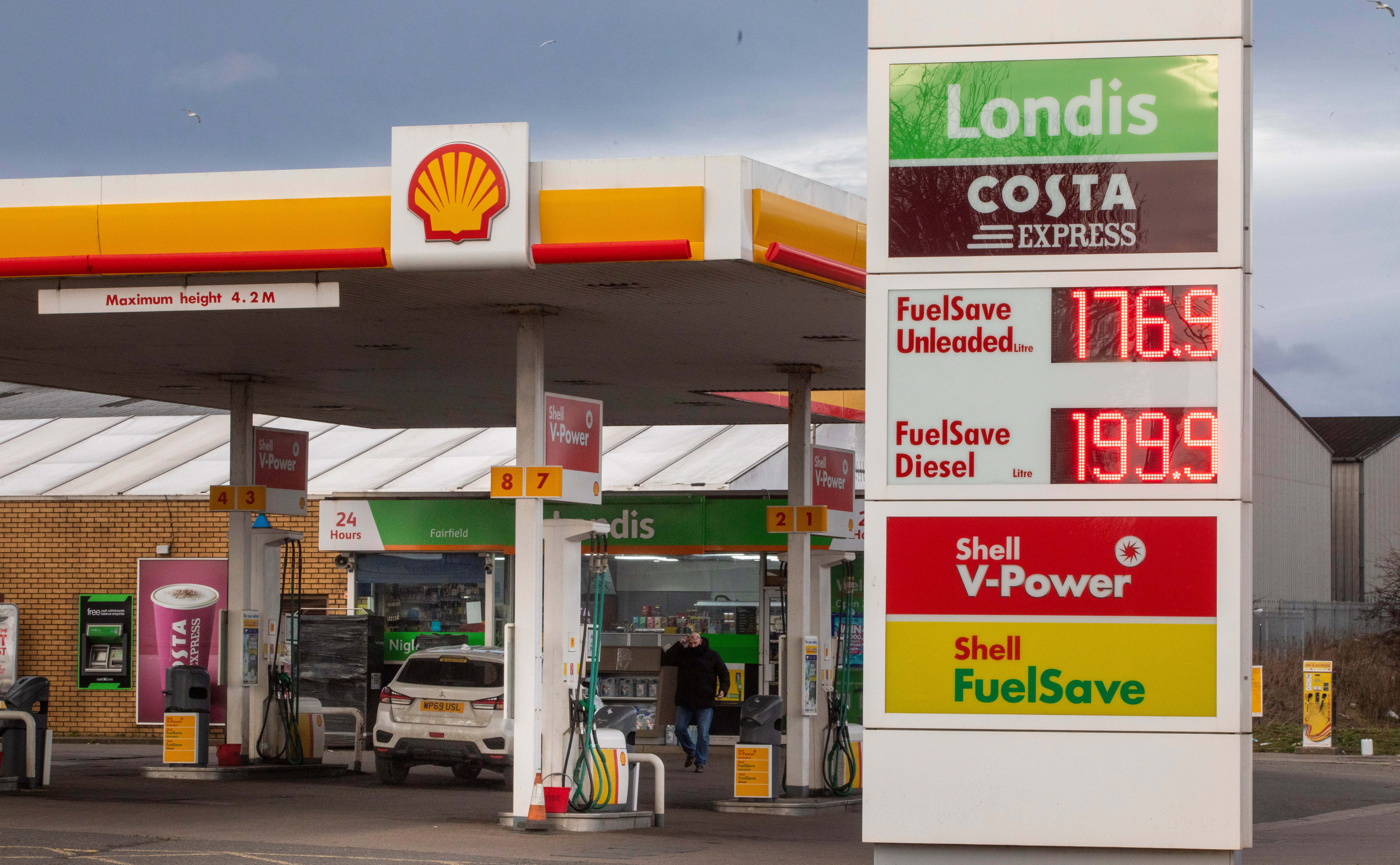Oil price fall provides relief for UK households but living standards still expected to drop sharply
Petrol forecast to hit £1.80 a litre before falling back down

UK households at last had some positive news about living costs on Thursday after two weeks of sharp oil price rises.
Today oil prices stabilised below $120 a barrel, after recent surges pushed the cost of filling up petrol tanks across the country.
Major disruption to oil supplies as Russia intensified its bombardment of Ukrainian cities had caused petrol and diesel prices to hit new record levels almost daily, adding to the squeeze facing British consumers.
Experts said upward pressures on petrol prices had eased after the United Arab Emirates signalled it would push other oil exporting nations to boost production.
Analysts shelved their most pessimist predictions of $200-a-barrel oil and said lower prices could provide some respite for struggling consumers, although any change in wholesale prices would take a few weeks to filter through to UK forecourts.
That means petrol could briefly hit £1.80 a litre before falling back down, according to estimates from Capital Economics, a consultancy.
Question marks also remain over how much and how quickly oil exporters in the Middle east can fill the void left by Russia, the world's second largest exporter of crude
"Lower oil prices, lower energy prices, benefit Europe in the UK because we are net energy importers," said Neil Shearing, chief economist at Capital Economics.
"Europe is certainly better off with oil at $118 a barrel - as it is now - than it was when oil was at $140."
He added: "If things stay where they are now the squeeze on living standards will be less acute.”
However, he cautioned that living standards are still expected face a substantial hit from gas prices which look set to remain stubbornly high while Europe goes through the economically painful process of weening itself off Russian gas.
Natural gas has more of an impact on household budgets because costs for other energy sources typically follow the market price for gas.
Giovanni Staunovo, an oil strategist at UBS, warned that oil prices would remain volatile and could spike further. A recent announcement by the energy minister of the United Arab Emirates that he would back higher oil production levels may not hold down prices for long, Staunovo said.
“In the short-term there is no producer who can offset large production disruptions [in Russia}, he said.
Only Saudi Arabia and the UAE are thought to have any significant amount of spare capacity and it can cover only a fraction of the amount that Russia typically exports each day.
Oil consuming nations are expected to continue to ease the upward pressure on prices by releasing more of the strategic reserves they keep.
“All these measures will result in lower spare capacity and lower strategic stocks, making the oil market even more sensitive to additional supply disruptions,” said Staunovo.
“Ultimately prices may need to rise even higher,” he said. “This would destroy demand and bring it back in line with the available supply.”
That would mean higher inflation for households. Capital Economics recently hiked its forecast for consumer price inflation, predicting that higher energy bills will push the cost-of-living gauge to 7.3 per cent in October.
KPMG has inflation peaking as high as 10 per cent, which would meaning a big pay cut in real terms for millions of people in the UK.
Energy consultancy Cornwall Insight, forecast on Thursday that the energy price cap will jump to almost £3,000 in October as a result of high wholesale gas costs.
Gareth Miller, chief executive of Cornwall Insight urged the government not to compromise its push towards net zero emissions because energy bills are now high.
He said: “We must find the balance between the pragmatism that the current geopolitical situation demands, and a resolute commitment to delivering net zero and an affordable, secure energy future that long-term subsequent generations will no doubt expect.”
Boris Johnson indicated this week that the government was seeking to increase the amount of gas extracted from the North Sea in a bid to decrease the UK’s dependency on imports.
Energy analysts and environmentalists questioned the effectiveness of that approach, pointing out that private companies which extract North Sea gas sell it to the highest bidder so it is not necessarily kept in the UK.
Subscribe to Independent Premium to bookmark this article
Want to bookmark your favourite articles and stories to read or reference later? Start your Independent Premium subscription today.

Join our commenting forum
Join thought-provoking conversations, follow other Independent readers and see their replies